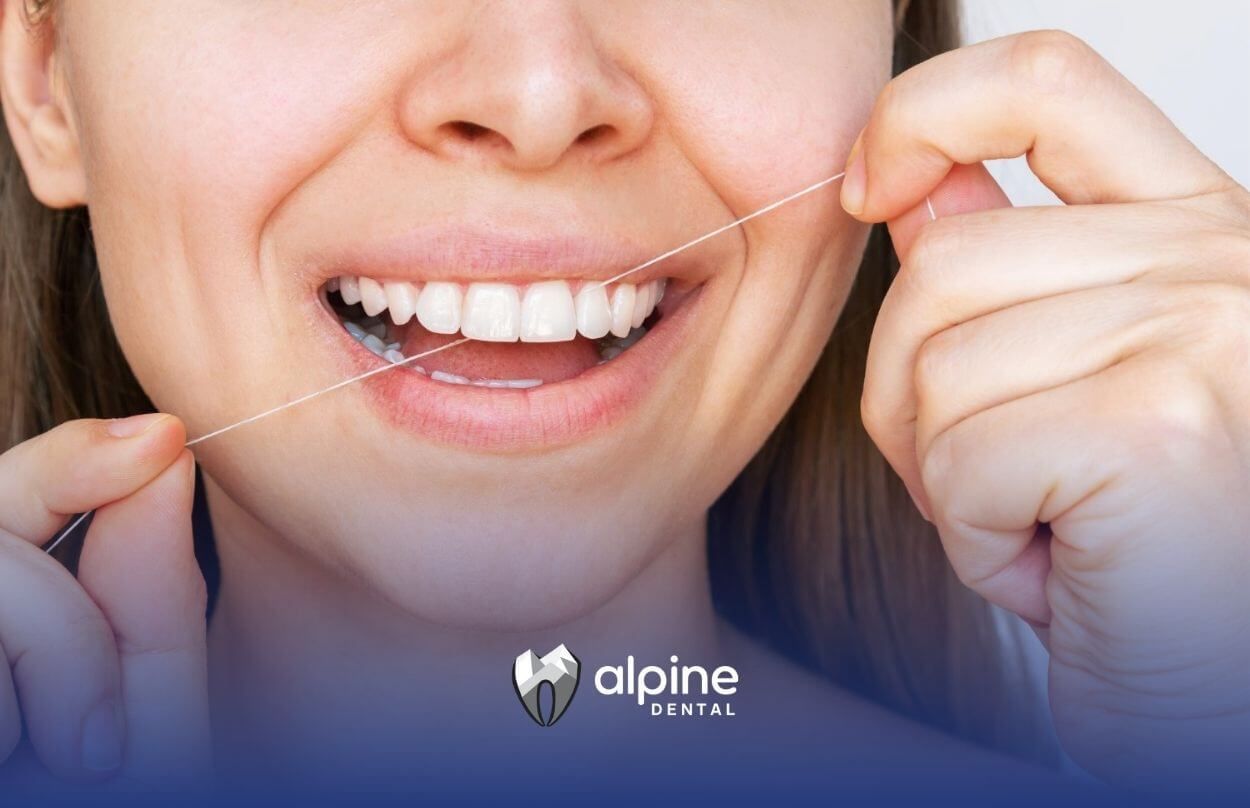Understanding the Effects of Stress on Oral Health in Kids
Key Highlights:
- Psychological stress directly impacts a child's oral health by weakening their immune system.
- The effects of stress can lead to behaviors like teeth grinding, which damages teeth and causes jaw pain.
- Stress is a known trigger for painful canker sores and can cause dry mouth, increasing the risk of tooth decay.
- A weakened immune response from chronic stress makes children more susceptible to gum disease.
- Managing stress and maintaining good oral hygiene are crucial for protecting your child’s dental health.
Introduction
As a parent, you know that your child's well-being is a top priority. While we often focus on their physical and mental health, it's easy to overlook the powerful connection between the two. Did you know that your child's stress levels can directly affect their oral health? Understanding this link is essential for nurturing not just a happy child, but a healthy one, too. Promoting good oral health is a key part of supporting their overall health and development.
How Stress Impacts Children’s Oral Health
When your child experiences psychological stress from school, social pressures, or changes at home, their body releases stress hormones. This natural "fight or flight" response, if it becomes chronic, can have a noticeable impact on stress on their entire body, including their mouth.
These hormonal changes can weaken their body's defenses, making their oral health more vulnerable to problems. Below, we'll explore the emotional links and the science behind how the effects of stress can lead to dental issues in children.
Connecting Emotional Stress and Mouth Health
The connection between your child's emotional state and their oral health is significant. When children feel overwhelmed by psychological stress, their daily routines can be one of the first things to change. This stress response often leads to the neglect of self-care habits.
You might notice that a child under stress is less likely to brush and floss regularly. This neglect allows plaque to build up in their oral cavity, creating the perfect environment for cavities and gum issues to develop. This shows how closely linked their mental health is to their physical well-being.
Ultimately, supporting your child’s oral health means paying attention to their emotional state. A child’s reaction to stress can manifest physically, and the mouth is often one of the first places where these signs appear. Being aware of this connection is the first step toward proactive care.
The Science Behind Stress and Dental Issues in Kids
The scientific link between stress and dental health issues involves the body's natural defense system. Chronic stress causes the body to produce higher levels of stress hormones like cortisol. While helpful in the short term, prolonged exposure to cortisol can suppress the immune system.
This weakened immune response makes it harder for your child's body to fight off bacteria in the mouth. As a result, they become more susceptible to infections, inflammation, and other dental problems. The effects of stress are not just emotional; they create real, biological changes that can harm your child's long-term dental health.
Here’s a simple breakdown of how this process works:
| Stress Factor | Body's Biological Response | Potential Dental Issue |
|---|---|---|
| School exams, social anxiety | Increased cortisol & other stress hormones | Weakened immune system |
| Weakened immune system | Reduced ability to fight oral bacteria | Gum disease, oral infections |
| Stress-induced habits | Neglecting hygiene, craving sugary foods | Tooth decay, cavities |
Common Oral Health Problems Linked to Stress
When your child is dealing with stress, you might notice changes in their mood or behavior, but their mouth health can also show telling signs. Several common oral health problems are directly linked to stress, ranging from physical habits to a higher risk of infections.
These issues include teeth grinding, canker sores, and an increased vulnerability to gum disease and tooth decay. Recognizing these symptoms can help you identify when stress might be affecting your child's well-being, allowing you to address the root cause and protect their smile.
Teeth Grinding (Bruxism) and Jaw Pain
One of the most common physical health manifestations of stress in children is teeth grinding, also known as bruxism. Many children unconsciously clench their jaw or grind their teeth while asleep when they are feeling anxious or stressed. This habit can exert immense pressure on their teeth and jaw.
Over time, this constant grinding can lead to significant tooth damage, wearing down the protective enamel, and even causing chips or fractures. It can also strain the jaw muscles and joints, leading to persistent jaw pain and headaches. These symptoms of stress can be uncomfortable and disruptive for your child.
Look out for these signs of teeth grinding:
- Complaints of jaw pain or soreness, especially in the morning.
- Noticeable wear or flattening of the teeth.
- Headaches or facial pain with no other clear cause.
- Increased tooth sensitivity.
Canker Sores, Dry Mouth, and Other Signs
Stress can also trigger other noticeable symptoms inside your child's mouth. Canker sores, which are small, painful sores that appear on the inner tissues of the mouth, are often linked to high-stress periods. Research suggests this is due to the effects of stress on the immune system.
Another common issue is dry mouth, which occurs when stress reduces saliva production. Saliva is crucial for good oral hygiene because it washes away food particles and neutralizes harmful acids. A lack of it creates an environment where bacteria can flourish, increasing the risk of oral infections.
Keep an eye out for these other indicators of stress:
- The appearance of painful sores inside the lips or on the cheeks.
- Complaints of a constantly dry or sticky feeling in the mouth.
- Difficulty chewing or swallowing.
- Frequent bad breath.
The Role of Stress in Gum Disease and Cavities
Beyond the more visible symptoms, stress plays a significant role in the development of two of the most common oral health issues: gum disease and cavities. Stress weakens the body's immune response, leaving the gums more vulnerable to the bacteria that cause inflammation and infection.
This compromised state can make it easier for gingivitis and, eventually, more serious periodontal disease to take hold. At the same time, stress-related behaviors can increase the risk of tooth decay. Let’s look at these connections more closely.
How Chronic Stress Contributes to Gum Problems
Chronic stress has a direct and harmful impact on your child's gums. When the immune system is continuously suppressed by stress hormones, its ability to fight off infection is significantly reduced. This makes the gum tissues an easy target for the bacteria that are naturally present in the mouth.
This weakened immune response allows bacteria to cause inflammation, leading to gingivitis, the earliest stage of gum disease. You might notice your child's gums become red, swollen, or bleed easily when they brush.
If the impact of chronic stress continues without intervention, this condition can progress. According to research, stress is considered a risk factor for the progression of periodontal diseases. This highlights why managing your child's stress is so important for their long-term oral health.
Is There a Link Between Stress and Tooth Decay?
Yes, there is a clear, though often indirect, link between stress and an increased risk of tooth decay in children. When kids feel stressed, they often turn to comfort foods, which tend to be sugary foods or drinks. This increased sugar intake provides fuel for the cavity-causing bacteria in their mouths.
Additionally, stress can lead to the neglect of oral hygiene routines. If a child is not brushing and flossing as they should, these sugary and acidic foods remain on their teeth longer, accelerating the process of decay. This combination of poor diet and neglected hygiene significantly raises the risk of tooth decay.
Furthermore, stress-induced dry mouth means less saliva is available to wash away food debris and neutralize acids. This leaves the teeth even more vulnerable. By creating this perfect storm of factors, high stress levels can absolutely contribute to the development of cavities.
Supporting Your Child: Prevention and Treatment
The good news is that you can take proactive steps to protect your child from the various ways stress affects their teeth. The foundation of prevention lies in combining consistent emotional support with a solid oral hygiene routine. Helping your child manage their feelings is just as important as ensuring they brush and floss.
By focusing on both stress management and excellent dental hygiene, you can help them navigate stressful periods while maintaining optimal oral health. Let's explore some practical strategies for managing stress and supporting their dental care.
Managing Stress for Better Oral Health Outcomes
Helping your child develop healthy coping mechanisms is a powerful tool for protecting their oral health. Effective stress management can lower their cortisol levels, which in turn strengthens their immune system and reduces the physical symptoms of stress. This creates a positive cycle where better mental well-being supports better dental hygiene.
When stress levels are managed, children are more likely to have the energy and focus to maintain their daily routines, including brushing and flossing. Encouraging open conversations about their feelings can make a world of difference.
Here are some simple stress management tips to try with your child:
Encourage regular physical activity or exercise.
Ensure they get enough sleep each night.
Make time for hobbies and activities they enjoy.
Practice deep breathing or mindfulness exercises together.
Talk openly about what might be causing their stress.
Maintain a consistent schedule for meals and dental care.
Conclusion
Understanding the effects of stress on your child’s oral health is crucial for promoting their overall well-being. As we've explored, stress can manifest in various dental issues, such as teeth grinding and canker sores, and even contribute to gum disease and cavities. By recognizing the signs of stress and its impact on oral health, parents can take proactive steps to help their children. Encouraging healthy coping mechanisms and maintaining open lines of communication can significantly improve their emotional and dental health. Remember, supporting your child through stressful times not only aids their mental well-being but also protects their precious smiles.
At Alpine Dental, we know that stress doesn’t just affect the mind—it impacts your smile too. From teeth grinding and jaw pain to gum concerns, our team is here to provide gentle, personalized dental care in Lakewood, NJ, for children, adults, and seniors alike. We work closely with families to address dental issues early, prevent long-term complications, and support overall well-being.
Schedule your appointment today and let us help protect your family’s smiles through every stage of life.
Frequently Asked Questions
What are some common signs that stress is affecting my child's oral health?
Common symptoms of stress on your child's oral health include unexplained jaw pain (especially in the morning), frequent canker sores, and complaints of a persistent dry mouth. You might also notice them grinding their teeth at night or see visible signs of tooth wear, which are clear indicators.
How can I help my child manage stress to prevent oral health issues?
Encourage healthy stress management techniques like exercise, getting enough sleep, and talking about their feelings. Pair this with a consistent dental hygiene routine. Supporting their mental health directly contributes to maintaining optimal oral health and prevents stress from causing physical damage to their teeth and gums.
What role do parents play in supporting their child's oral health during stressful times?
During times of stress, parents should offer emotional support while ensuring that routines like dental care are not neglected. Maintain regular dental check-ups, encourage open communication, and model a positive relationship with self-care. Your reassurance and consistency can make a significant difference in their oral health.
SOURCES:
https://pmc.ncbi.nlm.nih.gov/articles/PMC5010733/
https://www.cigna.com/knowledge-center/stress-oral-health
https://www.jomos.org/articles/mbcb/full_html/2018/01/mbcb160058/mbcb160058.html
https://headstart.gov/oral-health/brush-oral-health/discovering-impact-stress-oral-health
https://pmc.ncbi.nlm.nih.gov/articles/PMC10218473/




